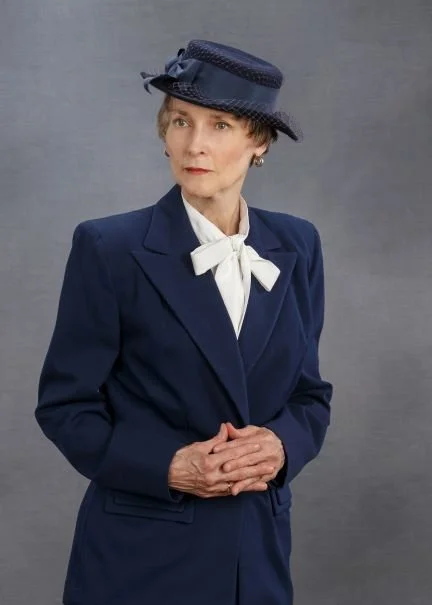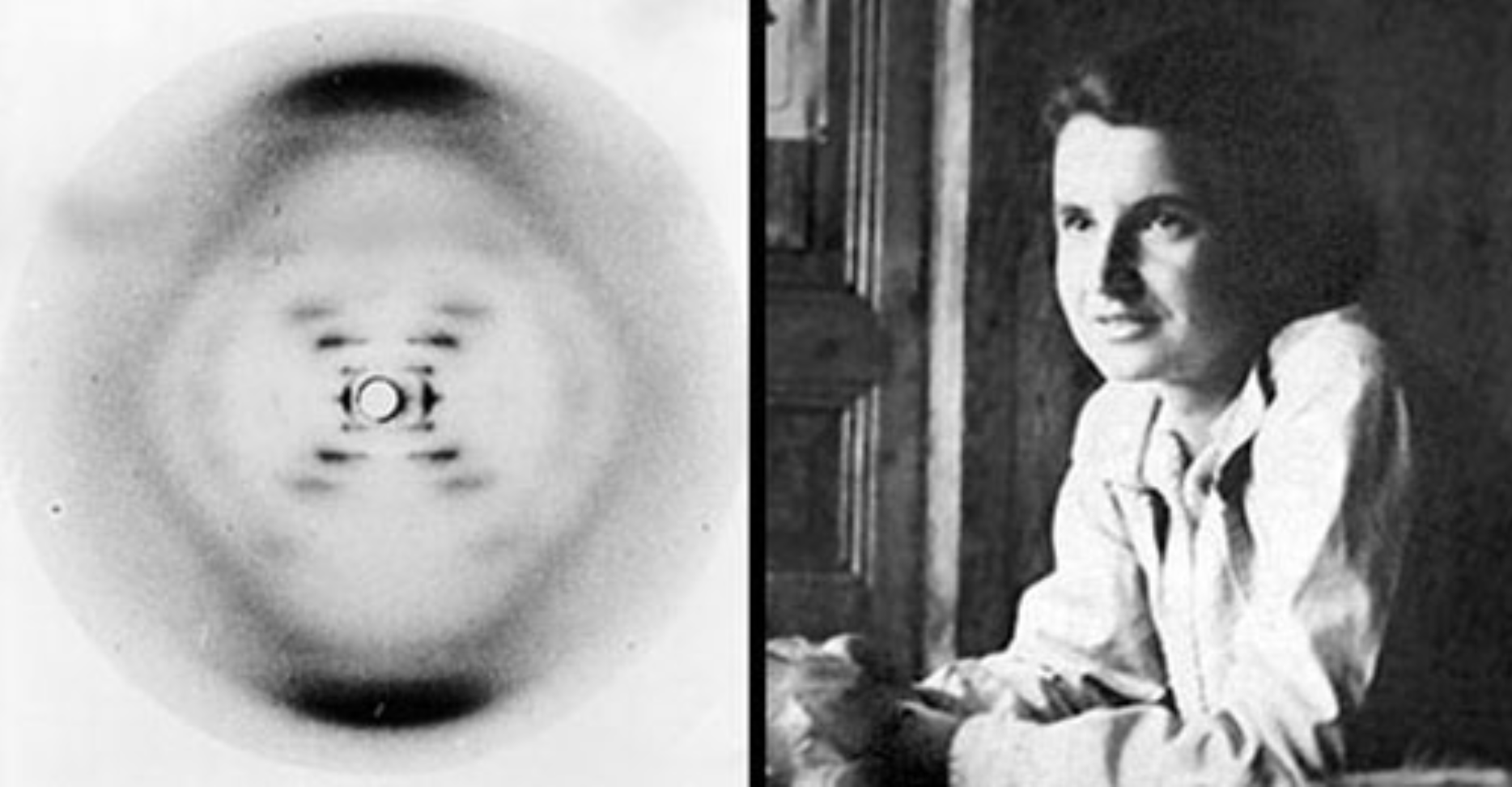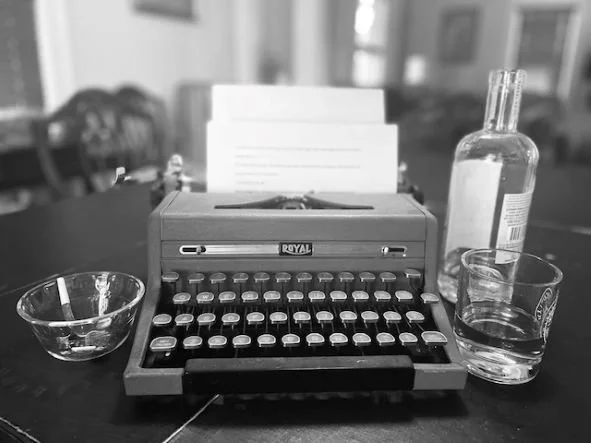Meet Frances Perkins
The Unsung Heroine Behind the New Deal: Frances Perkins (Part 1)
BY PATRICK FENTON
Thursday, November 16 - @6pm
The event is FREE for Worcester Historical Museum (WHM) members, students under 18, and with Museum general admission ($5)
For inquiries call the Museum at (508) 753-8278
Historical performer Janet Parnes portrays Frances Perkins, the first female cabinet member in Washington, regarded as one of America’s most influential women who defied the conventions of her middle-class Worcester upbringing to become a driving force behind work-related laws we take for granted.
The portrayal will focus on the tragedies, trials, and triumphs that shaped Miss Perkins’ earlier career--prepared her to be the first woman cabinet secretary, Secretary of Labor, during the tumult of the FDR administration. This is part one of a two-part series.
About Janet Parnes
As the founder of Historical Portrayals by Lady, Janet has been educating and entertaining audiences with portrayals of overlooked American women for more than 20 years. These portrayals whisk audiences back into life in the Colonial, Federalist, Victorian, and World War eras. Extensive research, attention to detail, and writing talent result in historically accurate performances that inform audiences and make them feel as if they are chatting with a friend. Audiences chuckle, marvel, and, sometimes, cringe!
Photograph 51
By Anna Ziegler
In conjunction with the Worcester Historical Museum
The play focuses on the often-overlooked role of X-ray crystallographer Rosalind Franklin in the discovery of the double helix structure of DNA while working at King’s College London, 1952,
Directed by: Barbara Guertin & Robbin Joyce
Produced by: 4th Wall Stage Company
Performances:
March 16 , 17, 18, 23, 24, 25 @ 6:30pm
March 18, 25@ 2pm
Where: Worcester Historical Museum
ORDER TICKETS: Tickets can be purchased by calling the Historical Museum @ (508) 753-8278
Production of 'Photograph 51' puts Rosalind Franklin back in the picture
Worcester Magazine
It's been called "the most important photo ever taken."
Deoxyribonucleic acid, better known as DNA, appears as a double helix in the X-ray diffraction image Rosalind Franklin had overseen taking at King's College London in 1952. That image is also known as Photograph 51.
The photograph was crucial in explaining the molecular structure of DNA. Knowing how the corkscrew-like DNA strand was configured, scientists could determine just how genes, the building blocks of life, actually did their job.
But all the research glory went to James Watson, Francis Crick and Maurice Wilkins, who won the 1962 Nobel Prize in Physiology or Medicine. Franklin had been dead for four years. The three did not go out of their way to praise Franklin's for providing insight into the understanding of the material that carries the genetic information in nearly every living organism.
A life remembered
The feeling that Franklin was unfairly marginalized and overlooked is an issue American playwright Anna Ziegler explores in her play, "Photograph 51." At the same time, the play pays tribute to Franklin's genius and steadfastness. Productions of the play have included Nicole Kidman playing Franklin in 2015 on London's West End.
"Photograph 51" was to have been presented by the 4th Wall Stage Company in March, 2020, at the Worcester Historical Museum to celebrate Women's History Month, but the production was an early victim of the pandemic.
In another tale of steadfastness, 4th Wall will finally be putting on "Photograph 51" in conjunction with the Worcester Historical Museum for Women's History Month three years later, during a run March 16 to 25.
"You'd think I'd get tired of it, but Robbin Joyce and I really enjoy the play," said Barbara Guertin, 4th Wall Stage Company managing director, who is co-directing "Photograph 51" with Joyce.
In March 2020, the emergence of COVID postponed the scheduled production of "Photograph 51" with the initial expectation that it would be up and running in a few weeks.
The cast continued to rehearse for three months, but the realization gradually became "it doesn't look like COVID is going away," Guertin said.
When 4th Wall got the green light for this year, "we did have to recast most of the show," she said.
However, "in all honesty, our cast now is so strong."
The cast includes Lorna Nogueira as Franklin, Michael Legge as Wilkins, Ben Butkus as Watson, Fred D'Angelo as Crick, Ajay Jain as Ray Gosling (Franklin's graduate student assistant) and Madji Ammari as Don Caspar (a Jewish American scientist who corresponds with Franklin).
A persistent debate
The controversy about Franklin's role being shunted to one side gradually grew following her death from ovarian cancer at 37, likely caused by X-ray exposure.
Franklin's work as an X-ray crystallographer led to an invitation to work as a researcher at King's College in 1951. Her previous highly praised research on coal molecules had been in response to the terrible smogs that would engulf London in the mid-20th century.
More:Selections from what customers at TidePool Bookshop are reading
More:New name, new home: New England Symphony Orchestra is now the Worcester Symphony Orchestra
The play depicts Franklin doubly up against the establishment by being a woman and Jewish. Wilkins often found her insufferable. Franklin wanted to do further research before running with Photograph 51, and didn't tell Wilkins about it.
Prejudice on many fronts
But as the play suggests, she soon feared on arrival at King's College that she was expected to be her colleague Maurice Wilkins' assistant in his DNA research.
"Rosalind wasn't able to eat in the lunchroom (at King's College). It was 'Men Only,' " Guertin said. "The time and the constraints absolutely impeded her ability to move forward with her research. Today, institutions are so much more inclusive than they were, but I would say anyone in that world has to be careful."
Watson and Crick’s paper revealing the structure of DNA was published in Nature in 1953. The two were at rival Cambridge University in England. Watson (brash, American-born, and now 94) had asked Wilkins for help, and when Wilkins found Photograph 51 he showed Watson the photograph without Franklin's permission.
.In the play, however, "you don't feel 'poor Rosalind' because she has such strong convictions," Guertin said.
Flawed genuises
How you feel about Watson, Crick and Wilkins is a different matter.
The play's structure often alternates between them giving monologues about their involvement with the DNA story and scenes of interaction with Franklin. Gosling also serves as a sort of narrator.
"Ziegler does a masterful job in pointing out the main reasons Watson and Crick did steal her (Franklin's) thunder," Guertin said.
Also, however, "it's a great story about any pioneer - about what they did to get there."
Science on stage
Given the subject matter there is "a lot of science talk" in the play, Guertin said.
"But the actors are just first-class" in conveying it in a way that holds the audience, she said.
"You have to make sure that the dialogue gets across and that it's engaging the audience. I'm a method director. We do most of our work on the front end of rehearsals making sure every word makes sense to the actors. We want to have an effect on people. We want to make sure that it's worthwhile and that people think about it. We want people to still ruminate a week, 10 days later," Guertin said.
Encouragement for women, girls
Meanwhile, "I'm on the board of Girls Inc. It's super important to share these stories with young women," Guertin said.
They can "learn from all the women who have done amazing things - and don't think you can't try. They can do anything they want to. It's important for them to see a play like this," Guertin said.
More:Harvey: Worcester Public Library visit brings answers, memories
More:Down to the roots: Remembering the Old Vienna, Eleni's, and Worcester's folk heyday
4th Wall has previously presented plays dealing with science and the role of women, including "The Women Who Mapped the Stars," about five women astronomers at the Harvard College Observatory beginning in the late 1800s who pioneered modern astrophysics and created the celestial roadmap we use today but were largely ignored by history until quite recently.
"It's important to advocate for yourself, but also to recognize the women who have been marginalized," Guertin said.
Enduring, inspiring
4th Wall Stage Company, which debuted in 2011, has a stated mission to "present live stage theatrical productions which are of enduring interest and which inspire, challenge and entertain both our artists and audiences."
In October 2019, 4th Wall kicked off its eighth season with "Naughty Bits," a bit of a romp in collaboration with Lowell's Image Theater, whose popular "Naughties" show is a collection of provocative, humorous and outrageous original skits and songs.
But that would prove to be it until 2022, when a fundraiser, "More Naughty Bits," and "If I Forget," a drama by Steve Levenson, were both staged at the BrickBox Theater at the Jean McDonough Arts Center.
The expected audiences weren't quite there.
"Last year it was tough. I think a lot of people were not ready to come out," Guertin said.
But 4th Wall has more "irons in the fire" for this year, she said. "It's great to have the Worcester Historical Museum. We're definitely planning some collaborative events," she said.
"Knowledge can only expand your mind and make you a complete human being. We (Worcester) are a science town. So many scientific inventions have happened here. That's just another reason to celebrate. We thought this ('Photograph 51') would be a great way to highlight Women's History Month," Guertin said.
'Photograph 51' by Anna Ziegler — presented by 4th Wall Stage Company in conjunction with the Worcester Historical Museum
When: 6:30 p.m. March 16, 17, 18, 23, 24 and 25; 2 p.m. March 18 and 26
4th Wall Stage Company: Theatre exploring ideas and emotions which speak to our common humanity and reverberate in the modern consciousness.
Casey at the Bat
by Stephen Murray - a musical staged reading
June 3rd at 2pm-3pm.
Worcester composer, Stephen Murray, has created a contemporary mini opera based upon another Worcester creation, Ernest L. Thayer’s 1888 poem, Casey at the Bat. The new musical work uses every word of Thayer’s poem, but also expands the story to include Casey’s wife, Dora Mae, a young lad who idolizes Casey, legendary umpire, Foghorn Bradley, and a crowd of enthusiastic baseball fans. This new version of the classic poem is sure to be enjoyed by baseball fans and music lovers of all ages.
Meet the Casey at the Bat cast:
Casey - Todd Vickstrom
Dora Mae - Tracy MartinoAlice/Ensemble - Nicole LianEnsemble - Peter ArsenaultThe Kid - Ethan GriswoldPianist/Foghorn Bradley - Stephen MurrayKEROUAC’S LAST CALL
BY PATRICK FENTON
Thursday, June 22nd 6pm
Audience members are invited to a “farewell party” as Jack Kerouac takes leave of his home in Northport, NY, to travel to St Petersburg, Florida for the final chapter of his life. What a strange trip, indeed, for the best-selling author of “On the Road,” the book that launched thousands of journeys for disillusioned youth worldwide. The proclaimed “King of the Beats,” and reclusive alcoholic was more comfortable listening to a Charlie Parker jazz riff than baring his soul to his best friends. But that is exactly what Jack does, in this brilliant retelling of the actual party that very night in 1967. Based on an old reel to reel tape of that evening, Patrick Fenton’s play reveals a man who knows that his best days are behind him but must confront the challenge of a lifetime… his acceptance of a daughter he denies. The show is 45 minutes long and contains some adult language/content.
Cast:
Kerouac - Jerry Bizantz
Jan Kerouac (his daughter) - Amber Charest
Memere Kerouac (his mother) - Barbara Guertin
Leo Kerouac (his father) - Mike Legge
Neal Cassady - Ben Butkus
Newsday Reporter - Robbin Joyce






